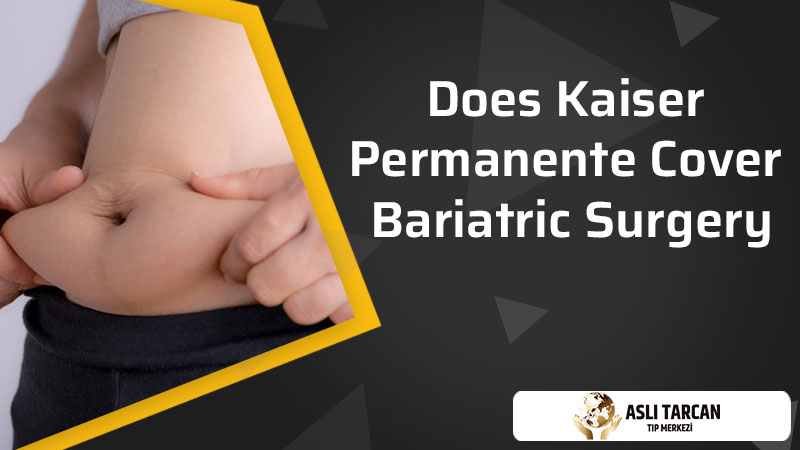Does kaiser permanente cover bariatric surgery varies from case to case? Bariatric surgery is a type of weight-loss surgery. This sort of surgery is only used on patients who are extremely overweight and are unable to lose weight with diet and exercise. We cannot know until we research whether does kaiser permanente cover bariatric surgery
Does Kaiser Permanente Cover Bariatric Surgery
The stomach is shrunk as a result of this operation. Some surgical procedures can alter the relationship between your stomach and intestines. Your choice of doctor is important here.
It is a significant step to get weight loss surgery. Following surgery, you will need to make new, lifetime adjustments to your eating and drinking habits.
Weight Loss Surgery is Covered by Kaiser Permanente.
Your policy must provide coverage for weight loss surgery in order to be eligible. Some policies are not covered. Please contact Kaiser Permanente directly to determine whether or not your coverage covers it.
Kaiser Permanente will pay for weight reduction surgery. Kaiser Permanente will cover gastric bypass, lap band, and gastric tube procedures if you fulfill the conditions mentioned below.
The Kaiser Permanente Requirements for Scope Surgery
Surgery is a tool for very obese people who are unable to lose weight using standard means. In most situations, Kaiser Permanente will pay for weight reduction surgery if you satisfy the following criteria.
Body mass index of 40 or higher, OR BMI of 35 or higher with at least one significant comorbidity
Comorbidities such as severe sleep apnea, high cholesterol, diabetes, and so on are all countable.
Above the age of 18
In the last two years, she has finished a medically supervised weight loss program.
Being severely obese for at least three of the previous five years. A doctor must document this (for example, annual visits to your birth room/GYN, etc.).
A psychological evaluation was successfully performed. Nothing will make it harder for you to keep to your new diet and lifestyle following surgery.
Weight Loss Surgery Types Kaiser Permanente provides coverage.
The most frequent weight loss procedures are covered by Kaiser Permanente. The following are some examples:
- Gastric bypass surgery
- Bands for the lap and stomach (Lap-Band and Realize Band)
- Gastric sleeve surgery is a type of gastric sleeve surgery (sleeve gastrectomy)
- Duodenal swap surgery is a surgical procedure that replaces the duodenum
- Kaiser Permanente does not cover the following procedures:
- Procedures for trans-oral stapling
- ‘Mini Gastric Bypasses’ are a kind of gastric bypass surgery.
- Gastric plication, with or without the use of a gastric band
What You Can Expect
After the procedure, you may be required to stay in the hospital for one or more days. The length of your stay is determined by the type of surgery you receive.
Most people require 2 to 4 weeks to return to their normal schedule.
Your doctor will provide you with precise advice on what to eat following surgery. You will begin by consuming only modest amounts of soft meals and drinks. You will gradually be able to eat more solid meals. Your doctor may advise you to consult with a nutritionist. This way, you can be certain that you are getting adequate protein, vitamins, and minerals while reducing weight. Even if you eat a healthy diet, you may require vitamin and mineral supplements.
You will not be able to eat a large amount of food at once after the procedure. You will be completely satisfied in a short period of time. Try not to eat too much at once or to consume meals that are heavy in fat or sugar. If you do, you may vomit, get stomach pain, or experience diarrhea.
Slimming Down
You will most likely lose a lot of weight in the first few months after surgery. Your weight reduction will slow down with time. You will be seen by a doctor on a regular basis to see how you are doing.
Feelings
It is normal to have a wide range of emotions following this procedure. When you start losing weight, you may feel joyful or excited. However, the changes you must make to your food, activity, and lifestyle may leave you feeling overwhelmed or irritated. Consult your doctor if you have any concerns or queries.
Consider bariatric surgery to be a tool for helping you reduce weight. It is not a quick fix. You must continue to consume a balanced diet and exercise on a regular basis. This will assist you in reaching your weight-loss target and avoiding regaining the weight you lost.
Why Is It Done This Way?
You get this sort of surgery to aid in your weight loss. If you have a body mass index (BMI) of at least 40 or at least 35, and you have additional weight-related health concerns, it may be considered. If you have tried to reduce weight for at least 6 months and your BMI is 35 or above, surgery may be performed.
How Effective Is It?
Most patients lose at least one-third of their extra weight following surgery, depending on the kind of surgery. Some people are able to remove virtually all of their extra weight. They determine the weight loss surgery according to its type. It also relies on how carefully people adhere to their doctor’s advice on lifestyle changes, exams, and counseling.
According to studies, persons who have gastric bypass surgery lose more overall weight than those who have a sleeve gastrectomy or a gastric band. Those who get gastric bypass surgery, on the other hand, have higher problems right after the procedure.
Risks
Here are certain hazards that are common to all weight-loss surgeries:
- Infections might occur at the location of the incision.
- A blood clot in your legs (deep vein thrombosis, or DVT) or in your lungs is possible (pulmonary embolism).
- Some vitamins and minerals may be deficient in your diet. This might result in issues such as anemia and osteoporosis.
- Gallstones can occur in certain persons.
- Kidney stones can occur in certain persons.
- If you do not stick to your diet and lifestyle plan, you may regain weight years after surgery.
What Are Some Weight Loss Surgery Insurance Secrets?
One of the key weight loss surgery insurance secrets is to be aware of the specific coverage provided by your policy. Many insurance providers will cover part or all of the cost of bariatric weight loss surgery, but it may depend on your individual plan and some pre-approval requirements. It is also important to know that even if an insurance provider does not cover bariatric surgery, you may still be able to receive financial assistance from other sources. Other sources include non-profit organizations and special financing programs for those with limited resources.

Additionally, speak with a reputable bariatric surgeon about available options for financing and weight loss surgery insurance secrets. By taking all these steps into account, you should be able to maximize your chances of getting approved for insurance coverage for weight loss surgery. Lastly, do not be afraid to ask questions and seek out experts who can give you more information about what is covered or not covered by your plan so that you can make an informed decision. Ultimately, understanding these important details can help make sure that you choose a path that best suits both your health and financial needs.



